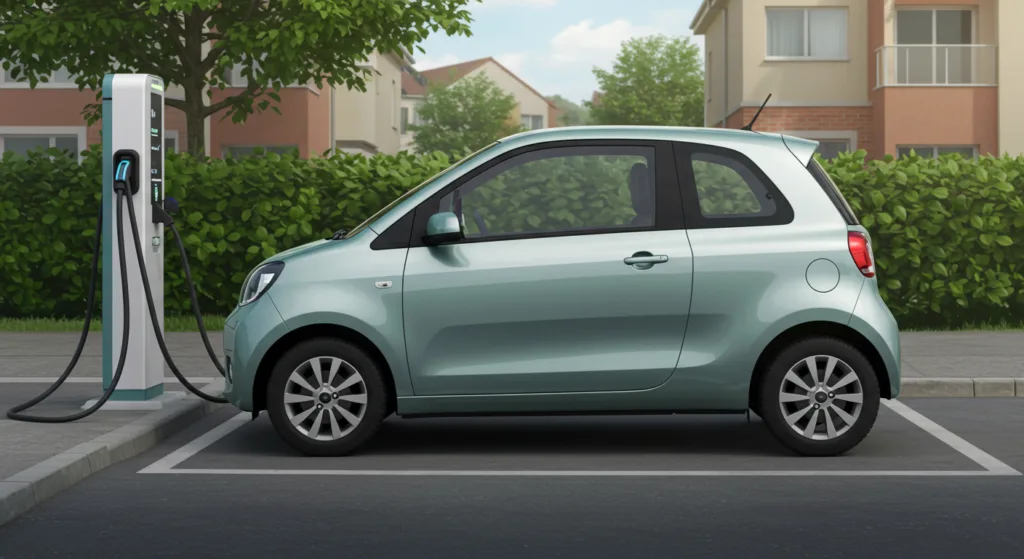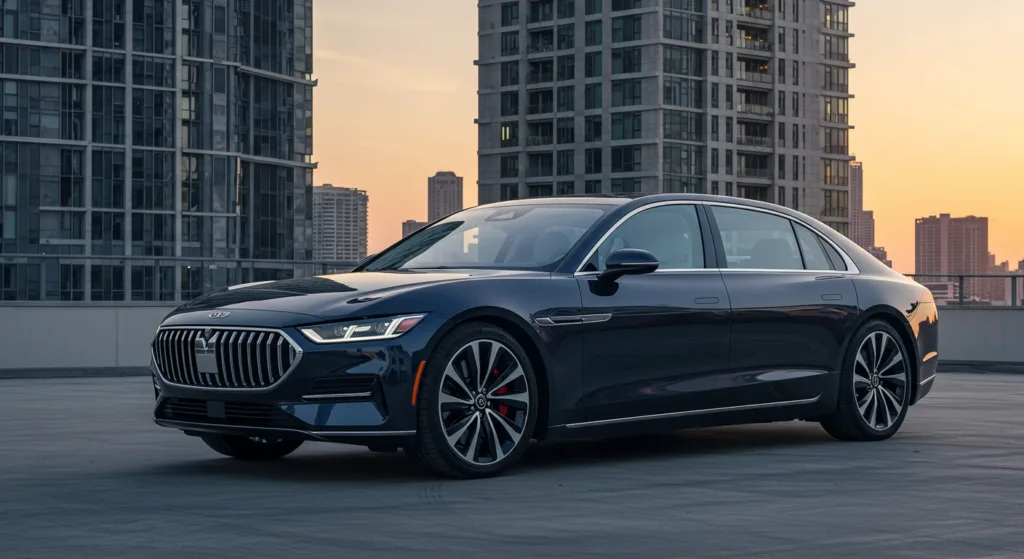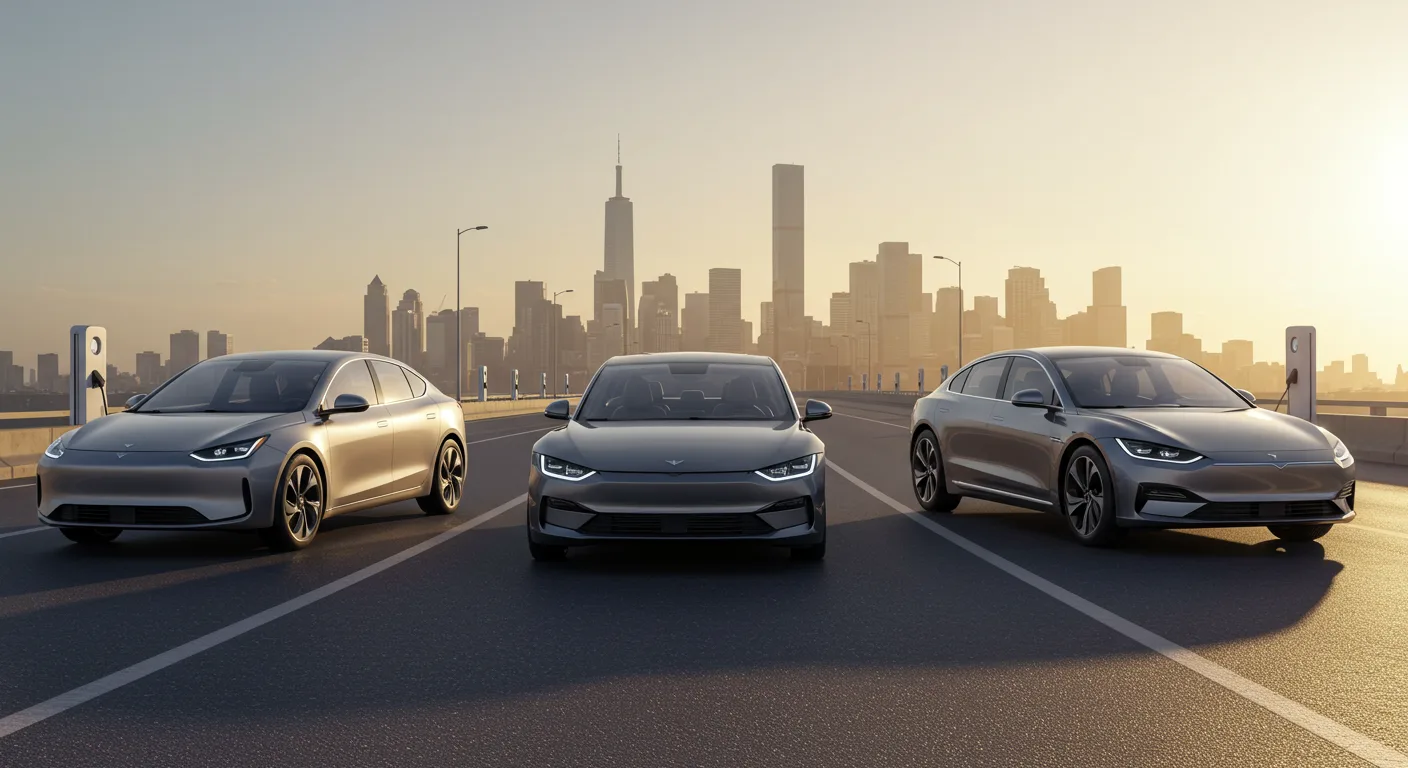Best Electric Cars Under $30K – Affordable EVs for Budget-Conscious Buyers

As electric vehicles (EVs) continue to surge in popularity, many drivers are asking: Can I afford to go electric without breaking the bank? The good news is—yes, you can. With advancements in battery technology, wider manufacturer offerings, and increasing government support, there are now several reliable electric cars priced under $30,000 that combine performance, efficiency, and practicality. Let’s dive into the top choices for 2025 and help you find the best electric car under $30K that fits your needs and your budget.
Best Budget Electric Car 2025: What Can You Get for Under $30,000?
For 2025, the sub-$30K EV market is more exciting than ever. Manufacturers are targeting budget-conscious consumers without sacrificing essential features. Here are some top contenders:
⚡ 2025 Chevrolet Bolt EV
- MSRP: Starting at ~$27,000$
- Range: Up to 259 miles (EPA estimated)
- 0-60 mph: Around 6.5 seconds
- Notable features: Regenerative braking, 10.2-inch infotainment touchscreen, wireless Apple CarPlay and Android Auto
The Chevy Bolt has consistently ranked as one of the most affordable EVs with the best range. With GM’s announcement to extend the Bolt’s production through 2025, it’s still a strong contender.
⚡ Nissan Leaf S
- MSRP: Starting around $28,000$
- Range: 149 miles (base model)
- Ideal for: Urban drivers or short commutes
- Warranty: 8-year/100,000-mile battery warranty
While it has a smaller range than newer competitors, the Nissan Leaf remains a reliable and proven option, especially with its low cost of maintenance.
⚡ Mini Cooper SE Electric
- MSRP: ~$29,900$
- Range: 114 miles
- Highlight: Sporty performance and fun driving dynamics
- Best for: City dwellers looking for a stylish electric car
Though it has a shorter range, its nimble handling and iconic design make it a solid choice for inner-city driving.
💡 Tip: Always check for dealer incentives or local EV rebates that could bring the effective price well below $30,000.
Cheapest EVs with Long Range: Are Affordable Models Worth It?
One of the biggest concerns for EV buyers on a budget is range anxiety. But recent developments are closing the gap between cost and performance. Here’s how some budget EVs compare when it comes to range per dollar:
✅ Most Miles per Dollar in 2025
| Model | Price (est.) | Range (EPA) | Miles per $1,000 |
|---|---|---|---|
| Chevy Bolt EV | $27,000 | 259 mi | ~9.6 mi/$1,000 |
| Hyundai Kona Electric (base) | $30,000* | 258 mi | ~8.6 mi/$1,000 |
| Nissan Leaf Plus | $30,000* | 212 mi | ~7.1 mi/$1,000 |
(*May exceed $30K slightly before incentives)
Despite its age, the Chevy Bolt still leads in value, offering more miles per dollar than most competitors. Newer entrants like the Hyundai Kona are catching up, bringing sleek design and modern tech to the mix.
Key Features to Expect in Long-Range Budget EVs
- DC Fast Charging (up to 100 kW in some models)
- Efficient regenerative braking systems
- Standard advanced safety systems (e.g., lane-keep assist, automatic emergency braking)
- Over-the-air (OTA) software updates in newer models
🚘 If your daily commute is under 50 miles, a budget EV with 200+ mile range can last several days between charges.
Government Incentives for Budget Electric Cars: How Much Can You Save?
Buying an electric car under $30,000 might sound like a tight squeeze—but federal and local incentives can make it significantly more affordable.
💸 Federal Tax Credit (U.S.)
- Up to $7,500 credit for qualifying new EVs
- As of 2025, the Inflation Reduction Act requires that EVs be assembled in North America and meet battery material sourcing rules
- Some models like the Chevy Bolt still qualify in full
🌍 State & Local Rebates (Examples):
- California: Up to $7,500 through the Clean Vehicle Rebate Project (CVRP)
- New Jersey: $4,000 rebate through the Charge Up NJ program
- Colorado: $5,000 incentive for qualifying purchases
🏢 Utility Provider Rebates
Many utility companies offer EV incentives or discounted rates for EV charging, including:
- Free home chargers
- Reduced electricity rates during off-peak hours
- Smart charger rebates up to $1,000
📊 In some cases, stacking federal, state, and utility incentives can lower the effective cost of a $30K EV to under $20,000.
Going electric on a budget is no longer a fantasy. Whether you’re a commuter, a city driver, or someone seeking a second car, today’s market offers affordable, high-value electric vehicles that deliver more than ever before.
Best Mid-Range Electric Cars – Top EVs for $30K to $50K

The sweet spot for electric vehicles is often in the $30,000 to $50,000 range, where you can get the best mix of performance, features, range, and value. In 2025, this segment is more competitive than ever, giving consumers options that rival luxury models at lower costs. Whether you’re upgrading from a gas car or moving on from an older EV, here’s what you can expect from today’s top mid-range electric cars.
Which Electric Car Offers the Best Value for $40,000?
With a $40K budget, buyers have access to some of the most well-rounded EVs on the market—offering long ranges, fast charging, advanced safety tech, and premium interiors. Below are a few standout options:
⚡ Tesla Model 3 RWD
- MSRP: ~$39,990 (subject to updates)
- Range: 272 miles (EPA est.)
- Charging: Access to Tesla Supercharger network
- Tech: Autopilot, over-the-air updates, minimalist touchscreen interior
- Best for: Drivers prioritizing performance, resale value, and ecosystem
⚡ Hyundai Ioniq 6 SE Standard Range
- MSRP: ~$37,500
- Range: Up to 361 miles (best in segment for efficiency)
- Charging: 800V fast charging architecture (10% to 80% in ~18 mins)
- Features: Sleek aerodynamic design, spacious interior, high-end infotainment
- Best for: Long-range commuters and those seeking high efficiency
⚡ Volkswagen ID.4 Pro
- MSRP: ~$39,735
- Range: ~275 miles
- Drive: RWD standard, AWD available
- Highlight: Practical crossover layout, solid cargo space
- Best for: Small families or those wanting a more SUV-like experience
🔍 If you’re looking for the most range per dollar, the Hyundai Ioniq 6 leads the pack in 2025 with its exceptional 361-mile capability—an impressive feat under $40K.
Mid-Priced EVs with the Best Features: What Do You Get for the Money?
Between $30,000 and $50,000, the EV market unlocks a significant jump in comfort, technology, and design, rivaling even entry-level luxury brands. Here’s what sets mid-priced EVs apart:
✅ Premium Features Now Standard
- Advanced driver-assist systems: adaptive cruise control, lane-centering, blind spot view monitors
- High-quality interiors: vegan leather, ambient lighting, panoramic sunroofs
- Infotainment upgrades: 12″+ displays, wireless Android Auto/Apple CarPlay, built-in voice assistants
- Battery thermal management: crucial for performance in cold climates
- Fast charging speeds: 100kW–350kW range, reducing wait times dramatically
🆚 Example Comparison of Features:
| Feature | Tesla Model 3 | Hyundai Ioniq 6 | Ford Mustang Mach-E |
|---|---|---|---|
| Range (EPA est.) | 272 mi | 361 mi | 250–300 mi |
| Infotainment | 15″ touchscreen | Dual 12″ screens | SYNC 4A system |
| Charging Speed | Up to 250 kW | Up to 235 kW | 150 kW |
| Acceleration (0–60 mph) | ~5.8 sec | ~6.2 sec | ~5.2–6.1 sec |
| AWD Option | ❌ (on RWD model) | ❌ (on SE model) | ✅ |
💡 Many buyers in this range are not only looking at range—they’re now comparing interior tech, build quality, and software updates when choosing the best EV.
Comparing Tesla Model 3 vs Hyundai Ioniq 6: Which Mid-Budget EV Wins?
These two models are often pitted against each other in 2025—and for good reason. They’re both sleek, efficient, and under $45,000. Let’s break down the key differences.
🔋 Battery and Range
- Tesla Model 3 (RWD): 272 miles (EPA)
- Hyundai Ioniq 6 SE Long Range: Up to 361 miles (EPA)
🟢 Winner: Ioniq 6 for sheer efficiency
⚡ Charging Network
- Tesla: Exclusive access to Supercharger network
- Ioniq 6: Uses public fast-charging networks (e.g., Electrify America)
🟢 Winner: Tesla (for now), although Hyundai is joining NACS (Tesla’s plug) in 2025
🧠 Software & Infotainment
- Tesla: Known for smooth UI and OTA updates, but lacks Apple/Android
- Hyundai: Offers wireless Android Auto and Apple CarPlay
🟢 Winner: Hyundai for compatibility, Tesla for polish
🚘 Driving Experience
- Model 3: Sportier handling, low center of gravity
- Ioniq 6: Smoother, more comfort-oriented ride
🟢 Winner: Depends on your driving style
💰 Price-to-Performance Ratio
- Model 3: Slightly more expensive for less range
- Ioniq 6: Better range per dollar, more standard features
🟢 Winner: Ioniq 6 for value, Model 3 for performance and resale
🏁 Verdict: If you prioritize range, comfort, and tech flexibility—go with the Hyundai Ioniq 6. If you want performance, resale value, and a premium EV ecosystem, the Tesla Model 3 is still a solid choice.
This mid-range category proves you don’t need to spend over $60K to enjoy high-end EV performance and features. Whether you lean toward the innovation of Tesla or the rising stars from Korea and Germany, the $30K–$50K segment offers something for every serious EV buyer.
Best High-End Electric Cars – Luxury EVs Worth the Investment

The luxury electric vehicle market in 2025 is pushing boundaries—merging cutting-edge performance, next-gen technology, and elite craftsmanship. For drivers who value both prestige and sustainability, the current lineup of high-end EVs offers a stunning combination of acceleration, range, and comfort. Whether you’re looking for a performance powerhouse, a chauffeured experience, or a tech-loaded sanctuary on wheels, the luxury EV segment delivers. Here’s a deep look at what’s available and whether it’s worth the premium.
What Are the Top Premium Electric Cars in 2025?
As of 2025, luxury EVs are no longer experimental—they’re defining the future of premium transportation. Let’s highlight some of the most highly rated and talked-about models this year:
⚡ Lucid Air Grand Touring
- Price: Starting ~$125,000
- Range: Up to 516 miles (EPA-rated) – the longest of any EV
- Power: 819 horsepower
- Interior: Ultra-luxury with executive rear seating, glass canopy roof
- Key Feature: 900V architecture for ultra-fast charging
- Best For: Long-range luxury with serious performance
⚡ Tesla Model S Plaid
- Price: ~$89,990
- Range: ~396 miles
- 0–60 mph: 1.99 seconds – fastest production sedan on the market
- Interior: Yoke steering (optional), minimalist design, 17” infotainment screen
- Key Feature: Access to Tesla’s Supercharger network
- Best For: Performance-obsessed EV buyers
⚡ Porsche Taycan Turbo S
- Price: ~$190,000
- Range: ~310 miles
- Drive Experience: Track-capable, precise handling
- Interior: Leather-free options, high-grade materials
- Key Feature: 800V charging system (270 kW peak)
- Best For: Driving enthusiasts who want Porsche DNA in an electric form
⚡ Mercedes-Benz EQS 580 4MATIC
- Price: ~$125,000
- Range: ~340 miles
- Interior: Hyperscreen dashboard, massage seats, ambient lighting
- Luxury Focus: Quiet cabin, rear-seat comfort, advanced ADAS
- Best For: Those prioritizing comfort, elegance, and tech
📈 Fun Fact: The global luxury EV market is expected to reach $260 billion by 2030, growing at a CAGR of over 30% (source: Fortune Business Insights).
High-Performance EVs vs Luxury Comfort: What Should You Prioritize?
When shopping for a high-end EV, most buyers fall into one of two camps: those chasing adrenaline and those seeking serenity. Here’s how to weigh the two.
🏎️ Performance-Oriented EVs
- Prioritize horsepower, torque, and acceleration
- Feature low drag coefficients for high top speeds
- Often come with track mode, adjustable suspension, and sport exhaust sounds
- Examples: Tesla Model S Plaid, Porsche Taycan Turbo S, Audi RS e-tron GT
Ideal for you if:
- You enjoy fast driving or motorsport culture
- 0–60 mph times matter
- You care about handling as much as luxury
🛋️ Comfort-Centered EVs
- Focus on ride quality, noise insulation, and spacious interiors
- Offer features like ventilated massage seats, aromatherapy systems, and soft-close doors
- Tailored for long-distance relaxation or chauffeured transport
- Examples: Mercedes EQS, BMW i7, Lucid Air Pure/Grand Touring
Ideal for you if:
- You value interior ambiance, quietness, and passenger comfort
- Tech integration and materials are more important than speed
- You often ride with family or clients
🧠 Tip: Some EVs like the Lucid Air Grand Touring or BMW i7 strike a rare balance—offering both high performance and top-tier comfort.
Is a Luxury Electric Vehicle Worth the High Price Tag?
Spending over $80,000 on a car isn’t for everyone, but for those considering a high-end EV, the question is less about price and more about value and experience. Here’s how to break it down:
🔍 Total Cost of Ownership (TCO)
Luxury EVs often have lower maintenance costs than their gas counterparts. No oil changes, fewer moving parts, and regenerative braking all help:
- Annual maintenance savings: ~$500–$1,000/year
- Fuel savings: $800–$1,200/year depending on mileage (vs premium gas)
- EV incentives: Some states still offer rebates or tax breaks even for luxury models
🧠 Resale Value
- Tesla and Porsche EVs tend to retain value well, thanks to brand loyalty and demand
- Models with cutting-edge tech or rare features (like the Lucid Air) can also command strong resale pricing
- However, rapid battery and tech evolution may depreciate certain models faster
💎 Intangible Benefits
- Environmental impact: Lower carbon emissions (especially when charged from renewable sources)
- Brand status: For many buyers, the luxury EV represents innovation, taste, and forward-thinking
- User experience: Smoother, quieter rides, instant torque, and advanced infotainment create a uniquely premium feel
🎯 If you’re already in the luxury car market, going electric not only makes environmental sense—it now makes financial and experiential sense too.
In the world of high-end electric vehicles, you’re not just buying a car—you’re investing in an advanced, future-ready lifestyle. Whether your priority is power, prestige, or peaceful driving, there’s a premium EV that fits.
Whether you’re shopping on a budget, aiming for the perfect mid-range model, or investing in a top-tier luxury EV, 2025 offers electric cars for every lifestyle and price point. With advancements in range, performance, and incentives, going electric has never been more accessible—or exciting.
🚗 Ready to make the switch? If you found this guide helpful, share it on social media to help others find the best electric car for their budget too!



